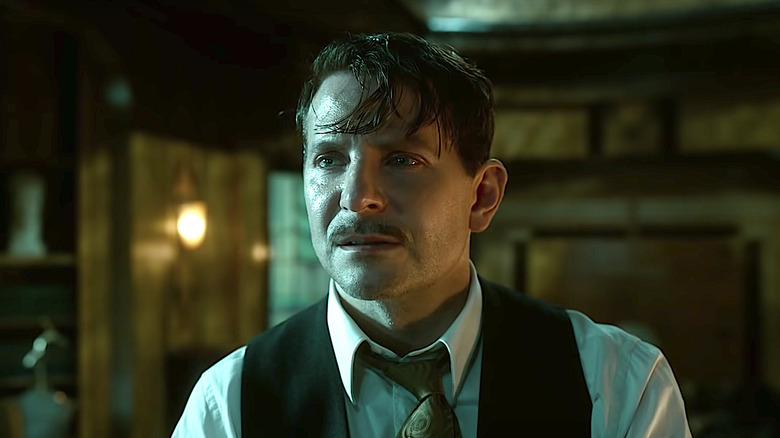
"Nightmare Alley" will definitely go down as a film that audiences initially under-appreciated. Guillermo del Toro's beautifully moody noir about a carnival "psychic" undone by his own greed got awards-show praise but flopped at the box office — perhaps partly due to resurgent COVID-19 fears.
When I caught this dark and twisted tale at a gorgeous historic theatre near Seattle, the seats were empty and the downcast proprietor lamented his luck as he filled a bag of popcorn. He'd signed up for a two-week exhibition and simply had to wait for this flatlining circus act to skip town. One can only hope this excellent thriller will find its footing through streaming.
The satisfyingly circular story follows Bradly Cooper as a cold-reading con who takes his scam to the big city. It's there he meets a mysterious shrink played by Cate Blanchett. The two hatch a scheme to dupe a wealthy widower into some seance-style communication with his dearly departed.
The director has listed his somewhat obscure influences for the film, but the elements are straightforward: beautiful noir cinematography, a tragically flawed hero obsessed with their craft, a femme fatale, a twist ending, and an enchanting dance with the exotic, strange, or supernatural. If you loved "Nightmare Alley," here are some similarly eerie and evocative noirs in the same spooky vein.
The Prestige
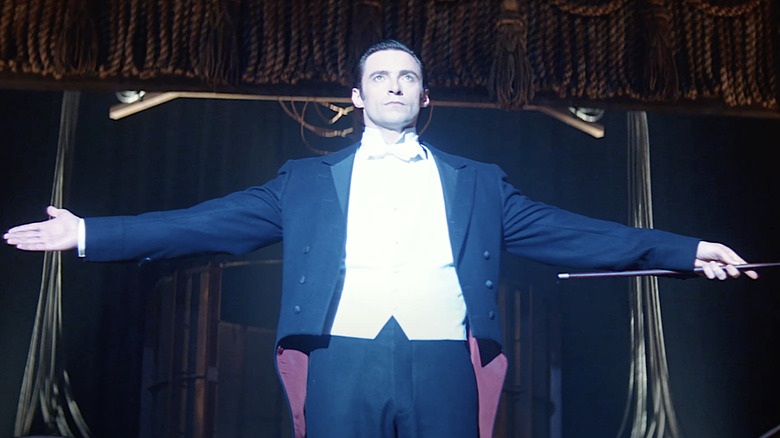
Christopher Nolan's best film, "The Prestige," is partly so compelling because it doubles the twisted antihero quotient in its thrilling face-off between two magicians, played by Hugh Jackman and Christian Bale. One is obsessed with his craft, the other is consumed by revenge. Scarlett Johansson's luminous turn as a magicians' assistant sometimes gets lost in the myriad marvels of this masterpiece. She's a softer femme fatale but nonetheless manages to genuinely love and betray both men.
"The Prestige," of course, surprises with a twisty adapted screenplay co-written by Nolan's brother Jonathon. In the film, the dueling illusionists happen upon Nikola Tesla, played by David Bowie, and some genuinely "real magic." It's here the protagonists cross into the truly dark arts and a point of no return.
Notably, "The Prestige" is also Nolan's most visually arresting film. Nolan's long-time director of photography, Wally Pfister, is not an on-the-nose noir stylist. There are no clichéd beams shining through blinds, creating a prison of shadows on our antiheroes' faces. The lighting is more subtle and gently illuminates the spectacular steampunk-inspired set designs. It's hard to imagine anything more inherently cinematic than Jackman standing in an accurate replica field of glowing Tesla bulbs. The perfectly shot period details make "The Prestige" timeless in every aspect (aside from the anachronistic Thom York tune plunked over the end credits).
Vertigo
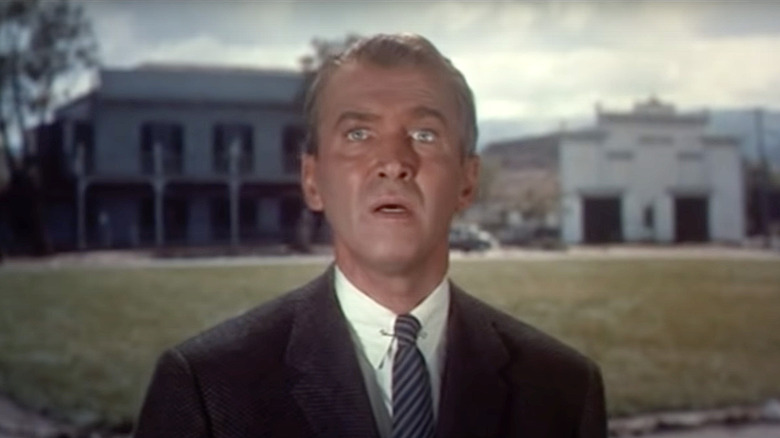
I never really liked "Vertigo," I just said I did. I went to film school and write about movies for a living, and "Vertigo" is like a sacred text in the Hollywood canon. Admitting it bored me made me feel like felt like a preacher who doesn't like scripture.
Then I suffered some real vertigo. I caught COVID-19 and had a stroke in my cerebellum — the brain's center of balance. Suddenly, the world wasn't as steady as before. While recovering, I revisited Alfred Hitchcock's 1958 masterpiece, and it sucked me in.
Jimmy Stewart plays Scottie, a traumatized San Francisco cop with a crippling fear of heights. He's hired to spy on a friend's troubled wife, but this dame (Kim Novack) is no damsel-in-distress, and she leads him down a deadly primrose path. Scottie's vertigo is real, but it's also a Hitchcockian metaphor for the vortex of the plot, as Scottie's obsession with the strange woman becomes a circle of destructive repetition. If you haven't seen "Vertigo," there's no guarantee that this vintage detective thriller will land. But if you're lucky enough to suffer some briefly disorienting brain damage, it just might trap you in its web.
Shutter Island
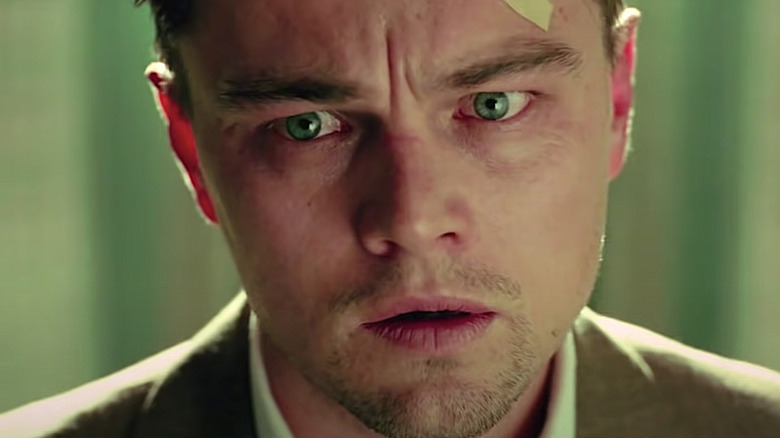
Martin Scorsese's "Shutter Island" has grown in prestige in the years since its theatrical release. It's steadily available to stream, but its enduring popularity is a bit of a puzzler for a psychological thriller so reliant on one big secret.
"Shutter Island" is the film in which the latently boyish Leonardo DiCaprio finally grows up, delivering what was then his best work as Teddy Daniels, a federal marshal sent to a mysterious insane asylum to investigate the disappearance of a patient. The staff of this elegant but fortress-like institution seems spooked and uncooperative, and there's a waft of Nazi human experimentation in the air. Mark Ruffalo is excellent as Daniels' partner, and Ben Kingsley is perfect as the island's shifty head shrink.
"Shutter Island" hits all the perfect noir notes. It's even set in the 1950s with lots of satisfying period detail. Everything is just old enough to make you believe in the specter of a cruel "madhouse" with a sinister secret. And the film is indeed about madness — the obsessive kind that comes from pain so great that self-destruction becomes preferable to reality.
Nightcrawler
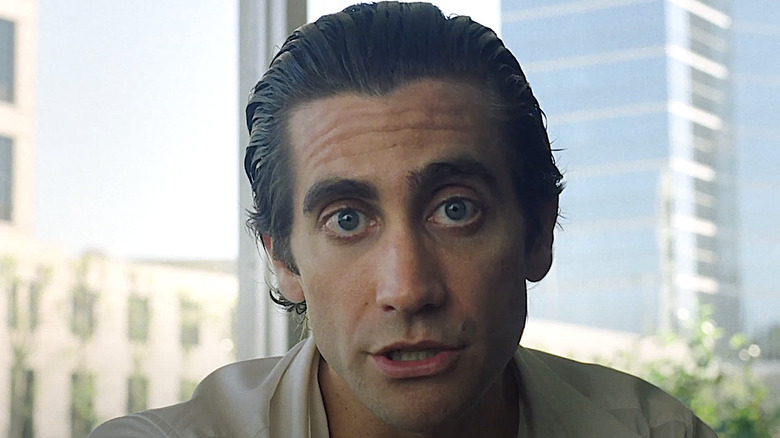
In "Nightcrawler," midnight black satire of local news sensationalism, the always brilliant Jake Gyllenhaal plays Lou, a petty LA crook with a knack for capturing gruesome footage perfect for the "if it bleeds it leads" business model.
What's brilliant about "Nightcrawler," aside from Gyllenhaal and Riz Ahmed as his hilariously dimwitted assistant, is that it asks the question, "What if a TV journalist was open about being a nakedly ambitious psychopath interested only in personal advancement?"
Subsisting on chewing gum and kale, Gyllenhaal lost 30 pounds for the film. "I knew that [Lou] was literally and figuratively hungry," he told Us Weekly. The result is startling. The normally beefy actor is bug-eyed and gaunt and looks older than his age. Seeing one of Hollywood's biggest movie stars utterly transformed into a hollow maniac who is just as manipulative as the exploitative "news" content the film is satirizing is truly disturbing.
LA Confidential
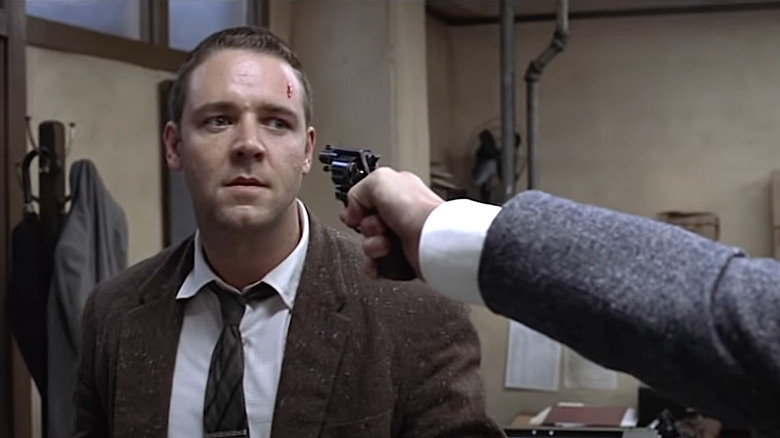
Underrated auteur Curtis Hanson's "L.A. Confidential," based on the excellent novel by James Ellroy, is simply the best period detective film Hollywood has ever made. From its visual style to the femme fatale played by Kim Basinger, it has all the elements of classic film noir. Plus, the story is a labyrinth of corruption that goes all the way to the top, borrowing a vision of the City of Angels built on the morally parched desert depicted in Roman Polanski's overrated "Chinatown."
Ignore AFI's 100 Greatest Films list which highly ranks "Chinatown." It's a fine list but privileges older films of historical importance. If you're just hankering for a golden age of Hollywood-style noir, "L.A. Confidential" is the superior film. It's more visually fluid, features a stronger ensemble, and even though it's seven minutes longer than Polanski's film, it feels much tighter.
"L.A. Confidential" is held together by a fittingly black-and-white character study. Guy Pearce plays an ambitious beat cop turned detective and the perfect foil to Russell Crowe's brutal but chivalric enforcer. Together, they're two sides of the antihero coin, and when the circumstances of this 1997 masterpiece bring them together, the impact is immense.
Crimson Peak
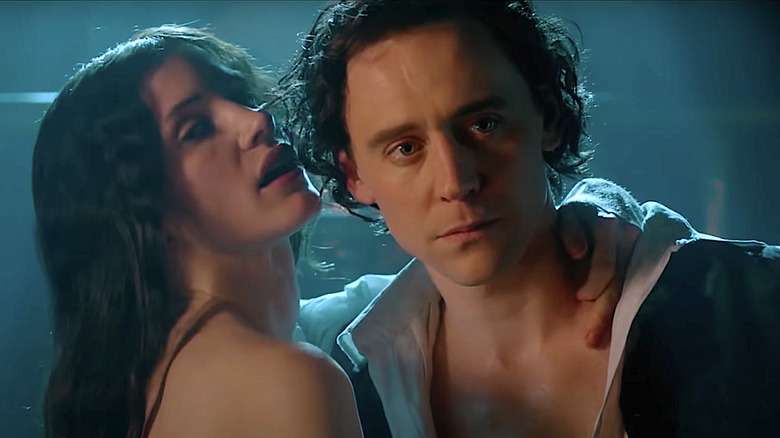
If you liked the haunting tone of "Midnight Alley," director Guillermo del Toro's slightly overlooked but stunningly crafted "Crimson Peak" should be your next destination.
The always sensational Tom Hiddleston plays the seductive Sir Thomas Sharpe, a suspiciously charming relic of old-world nobility who comes to America to seduce an heiress named Edith, played by Mia Wasikowska. The newlyweds return to Sharpe's crumbling Gothic mansion to live with his sinister sister, played by Jessica Chastain. Edith must solve the puzzle of this mysterious place or perish.
The real star of "Crimson Peak" is what always stands out in del Toro's work: the brilliantly elaborate sets. In this case, it's a stunningly grand yet dilapidated palace built from the ground just for the film. That's refreshing in an era in which so much big-budget film production consists of tacking up a bunch of green felt and then uploading gigs of hideous digital negatives for far-flung PC wizards to turn into a movie. "Crimson Peak" is a rebuke to this ugly assembly line trend and a reminder of the level of craft Hollywood is still capable of.
The Shape Of Water
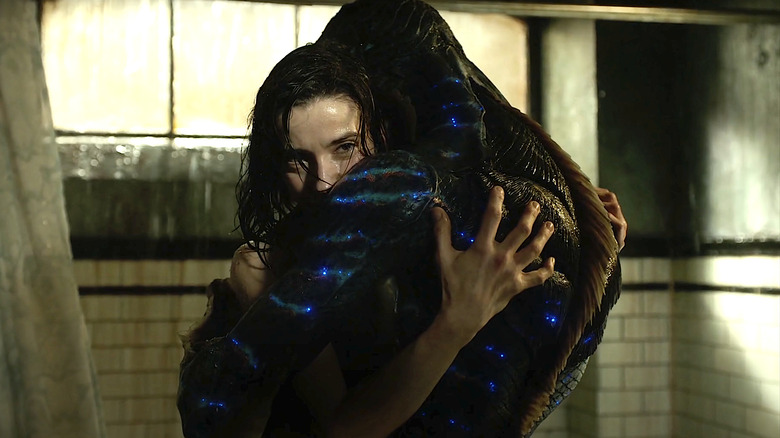
"The Shape of Water" is a surprisingly lovely interspecies romance by genre mashup master Guillermo del Toro. This film is essentially "The Creature From The Black Lagoon," reinterpreted as a Gothic fairy tale. In the film, the Amphibian Man (Doug Jones) is captured by a sinister Cold War-era agency run by the menacing Michael Shannon. Sally Hawks plays a member of the nighttime cleaning crew and becomes the working class princess who kisses this toad.
There's an intuitively heart-melting genre of videos online about the strong bonds between earth's varied species. These videos land because everyone intuitively understands the charisma of mammalian life.
"King Kong" works on this premise. He's huge and scary, but we don't really recoil over his soft spot for Fay Wray (or later, Naomi Watts). "The Shape of Water" is swimming in this same primordial soup but pulls a slippery trick as del Toro deftly subverts millions of years of evolutionary programming by asking us to love a lizardly visage as well.
Cape Fear
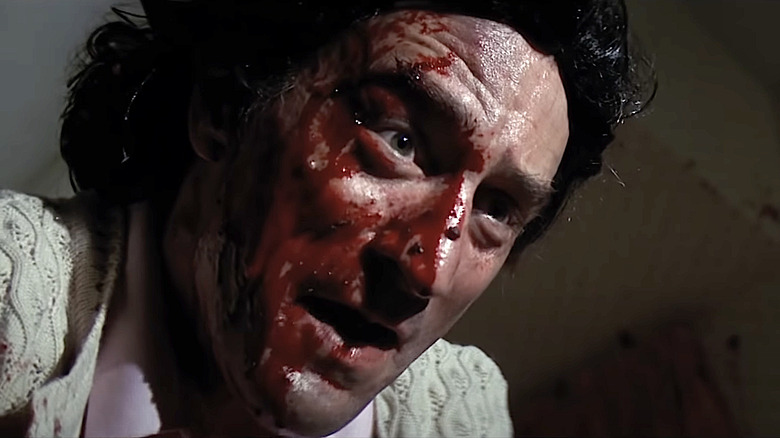
With "Cape Fear," a remake of the 1962 thriller starring Robert Mitchum, Martin Scorsese shows us what Travis Bickle from "Taxi Driver" might have turned into around middle age. Robert DeNiro plays an often-parodied, tattoo-covered convict on parole who terrorizes the family of his former defense attorney (Nick Nolte).
"Cape Fear" was notably scoffed at by some critics. After all, Scorsese is a genius. So why on earth was he doing a "slasher film?" The Washington Post was puzzled by this "drive-in movie" which they dubbed, "our most interesting filmmaker's least interesting work." Over 30 years later the broader conversation about popular films versus art-house cinema has barely budged. Outlets like Variety lamented in 2022 that popular but lighthearted movies like "Spider-Man: No Way Home" were still excluded from Oscar contention.
Scorsese's "Shutter Island" got this same frosty reception. It's a genre film, and critics seem continually vexed when Mozart drops a pop song. But the real wrongheadedness of dismissing an excellent and scary corker like "Cape Fear" is the underlying assumption that making a solid movie of any sort is easy. WaPo even claimed the film is, "within the reach of a hundred other directors." If that's the case, we're all waiting for the year— or decade — in which 100 genuinely scary thrillers come out. Until then, revisit "Cape Fear" and let its menacing competence send a chill up your spine.
Inception
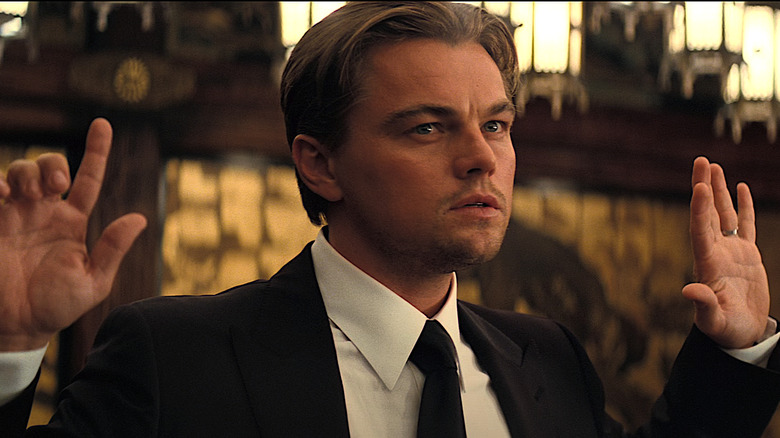
For "Inception," director Christopher Nolan uses his obsession with time as a close metaphor for Einsteinian physics. Time is especially relative inside the dream world, and this infinite regress of inner space turns the action-oriented script into a fertile playground for Nolan's love of a puzzle plot.
Nolan, who always goes for broke, also conjures up some of the most startling imagery in the history of cinema. Ironically, general relativity collapses as dreamscape architect Leonardo DiCaprio bends the land of nod to his will in the hunt for a MacGuffin that will allow him to return to his family.
"Inception" definitely isn't Nolan's best film. As in "Tenet," a complex plot gimmick overshadows the film's humanity. Despite all the unmatched technical wizardry, it's not an unfeeling film. It's another great entry in the oeuvre of a filmmaker consumed with his craft. Marion Cotillard is also haunting as a ghostly femme fatal, and this specter of death makes the ambiguous ending more powerful. It's all very Plato's Cave — shadows on shadows. Still, it's hard to walk away from this eye-popping blockbuster without feeling like Nolan has planted some doubt about the reliability of reality itself.
Zodiac
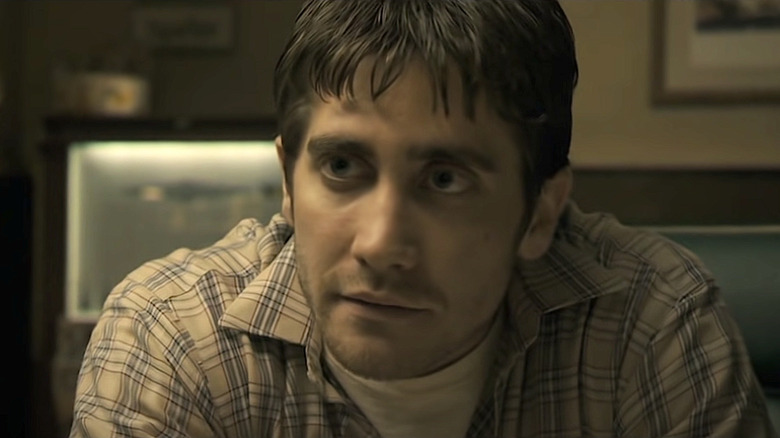
"Zodiac," David Fincher's heady and deeply subtle thriller about the notorious San Francisco serial killer is surprisingly riveting considering the film's methodical pacing and the fact these murders remain unsolved. The nearly three-hour opus (that has an even longer director's cut released in 2008) is told with such masterful noir moodiness, it doesn't need a tidy ending.
This dynamic faced a stiff test in 2021 when a cold case team claimed to have cracked Zodiac's mysterious ciphers and identified the killer as Gary Francis Poste, a purported rural gang leader who died in 2018. "So you've got to know Gary's full name in order to decipher these anagrams," former Army counterintelligence officer and the latest of many Zodiac code crackers Jen Bucholtz told Fox News.
If this all sounds familiar, it's because red-herrings in these Bay Area slayings have been tantalizing us since the Zodiac first sent his encrypted clues to the press beginning in 1969. Fincher's film, however, is about a man's obsession, not a resolution.
Jake Gyllenhaal plays the film's resident cryptologist who is completely unraveled by the journey. In the end, it doesn't matter that the movie probably points to the wrong suspect, namely Arther Lee Allen, an alleged sex offender who died in 1992. The story of "Zodiac" isn't really about a serial killer. It's about an unsolvable puzzle whose murderous author must be delighted to have trapped us inside his twisted game for so long.
The Maltese Falcon
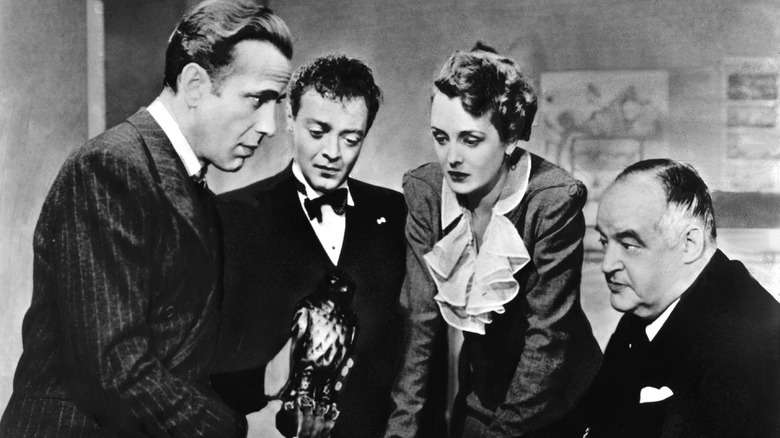
Director John Huston practically invented film noir with "The Maltese Falcon," both in its subject matter and in a shadowy visual style that borrowed heavily from German expressionism (though this 1941 film may seem positively overly lit to modern eyes on a 4k display). If you haven't seen it, you are missing the most important turning point in cinema history outside of the invention of sound. Almost every modern production employs the complex lighting schemes that originated with this classic.
Humphrey Bogart plays private eye Sam Spade in John Huston's adaptation of Dashiell Hammett's 1930 pulp novel. He gets involved in the hunt for a missing falcon statue, a long-lost treasure from Europe's misty past. The relic has come to the New World, and fast-talking Spade must untangle a twisted web of lies and battle a decadent European treasure hunter for the prize.
Private detectives were the urban cowboys of the 1940s. Since Spade isn't a cop, he works just outside the law. It's in this grey area between right and wrong that the genre's first iconic protagonist creates film noir's intriguing ambiguity about whether we're rooting for a hero or a villain.
Memento
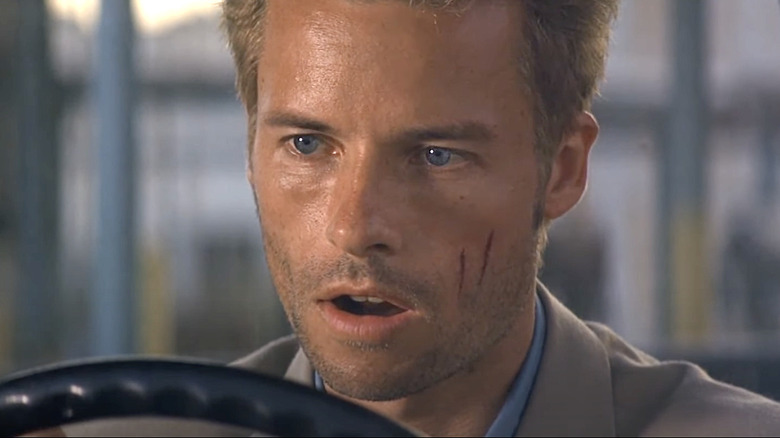
Christopher Nolan first explored his noted fixation with time in his stunning debut, "Memento." This film puts forward the notion that memory equals time, implying that without memory, time does not exist.
Told in reverse, "Memento's" initially playful plot was a formal innovation that wowed audiences in 2000. However, the story is simply explained: Guy Pearce plays Leonard, a man incapable of making new memories who is trying to track down his wife's killer. His only clues are the notes he scribbles on polaroids or sometimes tattoos on his skin. Leonard's disability is a twist on the great literary tradition of the unreliable narrator. The irony of the film's fantastic conclusion is that Leonard is selfishly playing a long con on himself.
"Memento" is based on the short story "Memento Mori" by Nolan's brother, Jonathon. Decades on, "Memento" not only holds up but has become even richer in the context of this master filmmaker's temporally-obsessed body of work.
The Usual Suspects
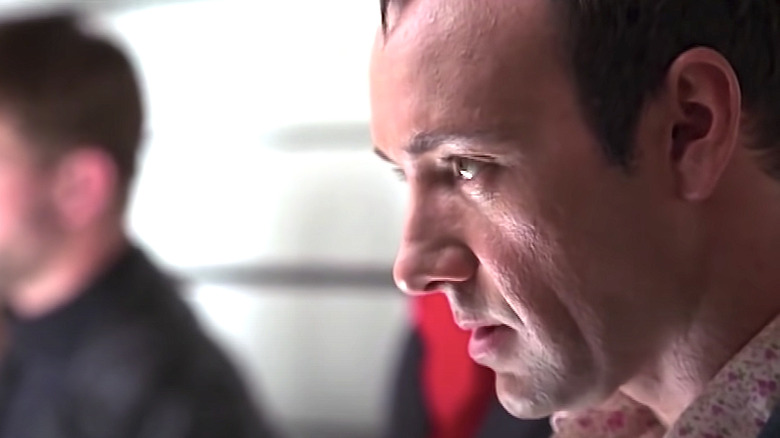
Brian Singer's masterpiece "The Usual Suspects" is among the best crime noirs ever made. Its genius lies in making its fascinating villain, Keyser Söze, a specter that we can never fully understand.
The plot follows a group of high-end crooks who get pulled in for a police lineup and decide to even some scores together. When they find out it was the mysterious crime boss Söze who orchestrated their alliance, the film becomes a twisty search for the puppet master holding the strings.
It's notable that all the film's Söze lore comes from the testimony of a professional liar, and we know that much of it is untrue. So maybe this Hungarian lord of the criminal underworld killed his own family just to prove a point. Or maybe not. That uncertainty is this devil's "greatest trick."
"The Usual Suspects" borrows the horror trope of hiding the monster but trades in a leaden scare for an incredibly shocking reveal that only works because the solution to the mystery is hiding in plain sight. The added intrigue is that even when all the cards are on the table, you can't be too sure about what you just saw.
The Killing
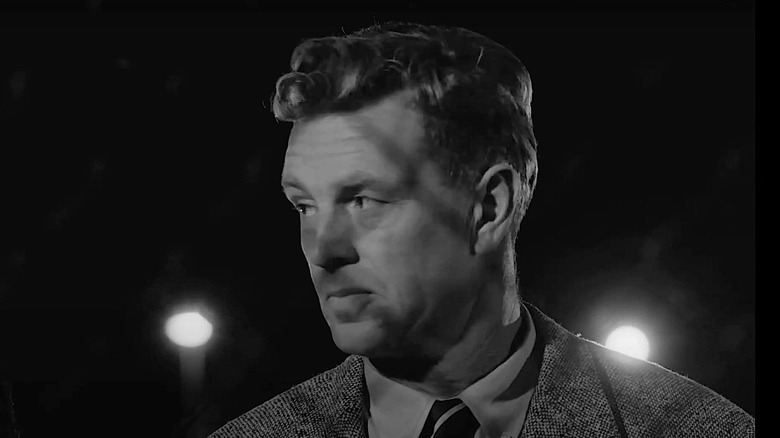
Stanley Kubrick's excellent but somewhat forgotten 1956 noir "The Killing" was one of Guillermo del Toro's inspirations for "Nightmare Alley." Del toro called Kubrick's mid-century film a masterpiece, noting in an interview that in the heist genre, "money, which has become an icon, loses all meaning," and becomes "neolisitc."
Like many noirs, "The Killing" is confusingly plotted. Nevertheless, the film is self-aware as the story follows a crook who assembles a crack team of criminal misfits for one last job. But when one of the conspirators tells his cheating wife about the scheme, she betrays him, and things get messy.
Kubrick was only 28 when he made "The Killing," but it contains the darkly ironic tone that would define the rest of his career. According to film critic Roger Ebert, Kubrick himself thought it was his first "mature" work. Without giving away too much, it's noteworthy that the punchline to del Toro's "Midnight Alley" is a blackly ironic twist of fate. Kubrick's best work from "The Shining" to "A Clockwork Orange" to "Dr. Strangelove" was always about humanity's Freudian desire for profane acts of self-destruction. With "The Killing, "Kubrick helped create modern film noir — a genre in which both money and human life lose all value.
Read this next: Horror Roles That Changed Actors Forever
The post Movies Like Nightmare Alley That Thriller Fans Really Need to See appeared first on /Film.
0 Comments